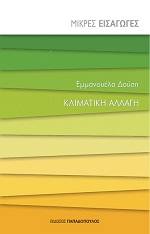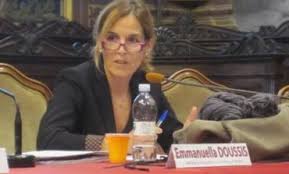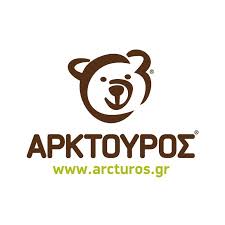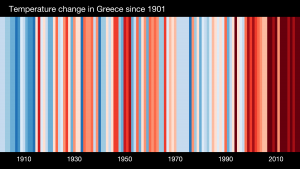climate change
DISSEMINATION AND PRESENTATION OF OUR PROJECT 2017-2020 – August 2020
DISSEMINATION AND PRESENTATION OF OUR PROJECT 2017-2020
All our project products were communicated for three years through email , sent to all our region’s and state public schools, to our students families guardians and parents, posted regularely on school sites and our Erasmus blog , to all local and regional authorities, educational , scientific and other institutions , local and national press, the dissemination and presentation took place in site at our schools and through online etwinning events and other digital platforms and forums (especially during the last year because of the Covid19 pandemic) etc Our project progress was covered and presented too by Italian and Greek press , on on-site Genova city official educational dissemination events, Greek regional TV stations, official Educational sites of Western Greece Periphery, and our videos are uploaded on our special Youtube channel too and links were widely shared by Facebook, Instagram and other media from all our students, friends and supporters, as from people who appreciated and admired our work too!!!
Our psoject on eTwinning Twinspace : https://twinspace.etwinning.net/34044
Our detailed work progress blog : https://blogs.sch.gr/samiamidi/
Our digital magazines : https://issuu.com/europeanschoolsgogreen
Our “highlights” site : https://europeanschoolsgogreen.wordpress.com/
Our Video channel on Youtube: https://www.youtube.com/channel/UClyCWViE3mXXVOxcutMcpSA
our work progress detailed calendar
https://teamup.com/ksa2i9snp37o13p6dk
Next DISSEMINATION, PROMOTION AND PRESENTATION EVENTS ON ETWINNING :
Erasmus+ “European Schools Go Green” Third Year 2019-2020 – Our project’s last “Green” Magazine
Erasmus+ “European Schools Go Green”
Third Year 2019-2020 Green Magazine
Published on Aug 16, 2020
ERASMUS+ PROGRAMME KA 2 STRATEGIC PARTNERSHIP “European Schools Go Green” 2017 – 2020
Third and last Year of collaboration 2019-2020
Our last Digital ” Green ” Magazine
2020
Galileo Galilei Technical High School of Genova, Italy 2nd Junior High School of Amaliada, Greece
Green Magazine 2020 Contents:
- Article by Mrs Franca Monzeglio – Galileo Galilei Technical High School of Genova Italy
- Article by Mrs Andreou Aikaterini – 2nd Junior High School of Amaliada Greece
- “ENVIRONMENTAL PROTECTION IN GENOA AND LIGURIA” – Galileo Galilei Technical High School of Genova Italy
- “The solar tracker” – Galileo Galilei Technical High School of Genova Italy
- “Polcevera Park project” – Galileo Galilei Technical High School of Genova Italy
- “Clean and Run Marathon” – Genova – Galileo Galilei Technical High School of Genova Italy
- DR ROBERTO CAVALLO INTERVIEW – Galileo Galilei Technical High School of Genova Italy
- MRS BARBARA BOSIO INTERVIEW – Galileo Galilei Technical High School of Genova Italy
- DR WALTER RIVA INTERVIEW – Galileo Galilei Technical High School of Genova Italy
- “Climate change – show your stripes!” – 2nd Junior High School of Amaliada Greece
- “ Europe’s renewable energy policies “ – 2nd Junior High School of Amaliada Greece
- “ RES in America “ – 2nd Junior High School of Amaliada Greece
- “GREECE ‘S ENERGY POLICY” – 2nd Junior High School of Amaliada Greece
- “TILOS PROJECT case study” – 2nd Junior High School of Amaliada Greece
- Interview of Political Scientist Proffessor Emmanuella Doussis- 2nd Junior High School of Amaliada Greece
- Panagiotis Psychogios Interview , Wind Turbines and Farms Construction and Policies – 2nd Junior High School of Amaliada Greece
- Mrs Despoina Kossyvaki Interview , Smart Materials , Bioengineering – 2nd Junior High School of Amaliada Greece
- Interview of Mrs Haroula Kromyadou – Environmental Education –“ Arcturos” NGO- 2nd Junior High School of Amaliada Greece
- Experts/Scientists/ Organizations/ Institutions/ Firms etc having taken part in our project 2017-2020 we would like to thank a lot for their contribution : Italy – Greece
Follow the link to read ans share our magazine ! :
European Schools Go Green magazine 2020 issuu digital publication
Interview of Proffessor Emannouella Doussis , on Climate Change, Environmental International Law etc
Interview of Political Scientist Proffessor Emmanuella Doussis
Dept. of Political Science and Public Administration, National and Kapodistrian University of Athens
As part of our project’s research, students of 2nd Junior High School of Amaliada, Greece, prepared a political scientist interview after collecting and studying information about environmental policies in Greece and around the world.
We had the honour and great joy to get in contact with Proffessor Emannouella Doussis , an expert on Environmental International Law and International Organisation, United Nations System, Peaceful Settlement of International Disputes and International Environmental Law.
She was very ethousiastic and supportive to our project and she also sent signed copies of her book “Climate Change: Facts and Dilemmas” for our “Erasmus Green mini library” in our School’s Erasmus multipurpose classroom.

Professor Emmanuella Doussis book “Climate Change: Facts and Dilemmas”, Papadopoulos Publishers, Athens, 2017 (in Greek)
She answered all students questions gladly and congratulated us for our work ! We are very happy and honoured to post and publish her interview in our last digital magazine on August 2020 and on this blog . It will also be presented
We are also going to keep in touch with Dr Emannouella Doussis next years even after our Erasmus project, as with all our collaborators, because environmental education , global ecology and the fruitful communication between our students and the scientists and specialists we contacted during these amazing years, are going to be a very important part of our school life in the future too. In her interview she also proposed that our school can continue by preparing other projects, like for example drafting our own Green Deal for Ileia Prefecture.
Proffessor Doussis says in her interview:
This is an amazing project and I am sure that you have gained a great experience in participating and developing a culture of communication with high school students from other parts of Europe. You should be grateful to your professors who took the initiative to participate in this project and lead you to this wonderful path. You should continue this way and try to build bridges among different school communities even in your region with the aim of creating sustainable solutions. The future is yours and you should be involved in this process of working for a better and more sustainable world.
Thank you so much Proffessor Emmanouella Doussis!!!
Read here the full very interesting and inspiring interview in the following pdf file:
Emmanuella Doussis Curriculum Vitae
Emmanuella Doussis graduated from the University of Athens and continued her postgraduate studies at the University Paris I, Panthéon-Sorbonne with a DEA (Diplôme d’Etudes Approfondies) in International Law and International Organisations and a DEA in Environmental Law. She completed her studies with a Phd in International Law.
She works as an Associate Professor at the National and Kapodistrian University of Athens. She lectures on International Organisation, United Nations System, Peaceful Settlement of International Disputes and International Environmental Law. She has been a visiting professor at the Faculty of Law and Political Science of the University of Dijon (France) and at the Faculty of Law of the University of Grenoble, where she lectured on selected issues of the law of the sea and international justice. She has also been a visiting fellow at the European University Institute in Florence (Global Governance Programme).
She is a member of the International Law Association Committee on the Role of International Law in Sustainable Management of Natural Resources. She is also a member of the French Association of International Law and Academic Coordinator of the Jean Monnet module on “Moving the EU forward” (2015-2018). Her most recent book concerns the climate diplomacy. She has written several articles, in french, english and greek.
Recent publications (selection)
- “The International Monetary Fund and Global Ocean Governance”, Chapter 4, in: in David J. Attard, Malgosia Fitzmaurice, Alexandros X.M. Ntovas (Eds) Comprehensive Study on Effective and Sustainable Global Ocean Governance – vol. 2: UN Specialised Agencies and Global Ocean Governance, Oxford University Press, Oxford, 2018.
- Climate Change: Facts and Dilemmas, Papadopoulos: Athens, 2017.
- Global Environmental Governance in Crisis, Papazissis: Athens, 2014.
- “Marine Scientific Research”, in: G. Andreonne (ed.), The future of the Law of the Sea. Bridging Gaps beween national, individual and common interests, MARSAFENET Springer, 2017, pp. 87-104.
- “Sauver les baleines contre les baleiniers : coup de projecteur sur l’arrêt de la CIJ du 31 mars 2014”, Annuaire de Droit de la Mer, 2013, pp. 175-198.

“The Blue Marble” is a famous photograph of the Earth taken on December 7, 1972, by the crew of the Apollo 17 spacecraft en route to the Moon at a distance of about 29,000 kilometres (18,000 mi). It shows Africa, Antarctica, and the Arabian Peninsula. NASA/Apollo 17 crew; taken by either Harrison Schmitt or Ron Evans
Some information on Environmental law:
Environmental law is very important to study and use as a guide for change , both during our project and in the future, as it seems it does not yet have the really important and basic role it should in our lives. Pollution control: air and water quality, waste management, contaminant cleanup, chemical safety. Resource sustainability : water , forest and mineral resources, wildlife and plants… Principles as Sustainable development, Equity,Public participation and transparency, Precautionary principle, Prevention, Polluter pays principle!
“Environmental law is a collective term encompassing aspects of the law that provide protection to the environment. A related but distinct set of regulatory regimes, now strongly influenced by environmental legal principles, focus on the management of specific natural resources, such as forests, minerals, or fisheries. Other areas, such as environmental impact assessment, may not fit neatly into either category, but are nonetheless important components of environmental law. “( wikipedia)
See also : List of international environmental agreements
Further information: Environmental protocol
Interview of Mrs Haroula Kromyadou , Responsible for Environmental Education Projects of Arcturos NGO – 2nd Junior High School of Amaliada
Interview of
Mrs Haroula Kromyadou
Responsible for Environmental Education Projects of Arcturos NGO
2nd Junior High School of Amaliada, Greece
Foundation of ARCTUROS
“ARCTUROS is a non profit, non governmental, environmental organization (NGO) founded in 1992, focusing on the protection of wildlife fauna and natural habitat, in Greece and abroad.
The foundation of ARCTUROS was driven by constant need to solve the problem of bear and wolf imprisonment; a common occurence at the time. It was that need, which led to the creation of a complete action framework, under the umbrella of ARCTUROS.”
Arcturos has helped a lot with our project all this years, and kindly and generously offered to our school all kinds of printed and digital material including books and leaflets and dvds with multimedia products for our research and study . We thank them a lot and we are really inspired and moved by their work and amazing activities and efforts.
Functioning of the Environmental Center of ARCTUROS
“Among other activities of ARCTUROS, priority has been given to scientific research as well as to providing environmental education and raising public awareness on matters such as biodiversity and viability, while practicing political pressure based on complete programs and solutions.”
Haroula Kromyadou as the responsible for the Arcturos center Educational projects offered to hel us with the activists – specialists interviews and answered our qusteions in difficult times during the Covid19 Pandemic. We are really grateful for all her work and help, and we admire her strength and positive energy as all her colleagues as well. We are going to work with Arcturos next year after our project’s end too, and we will also contribute to their work in as many ways as we can.
“My name is Haroula Kromiadou and I’ m a philologist-pedagogist with post-graduate studies in School Pedagogy and Environmental Education. I work at the NGO ARCTUROS, where my responsibilities include planning and implementing Environmental Education projects for children and adults. I met ARCTUROS when I was a student as a volunteer and a short time later I was offered a job to work there. I accepted the job because I always loved animals and children.”
Read the full very intertesting interview of Mrs Kromyadou in the pdf file attached above.
Photo credits : ©ΑΡΚΤΟΥΡΟΣ
If you want to help the amazing work of Arcturos too, you can see how you can do that here by becoming a member, volunteering to work in the Arcturos foundation, “adopting” a wild animal in the shelter, or donate to the Foundation etc
For example:
https://www.arcturos.gr/en/participate/volunteerism/
https://www.arcturos.gr/en/participate/membership/
https://www.arcturos.gr/en/participate/adoption/
Information on the European Union’s renewable energy policies- sustainable goals – EU countries profiles examples and comparisons George Papachristodoulou
One of the most important parts of our Erasmus project students’ researches was finding and evaluating information. They were introduced to the official sites with true statistical charts, legit information and interactive research and data tools, providing for example comparisons results, as between Eu countries “green” policies and sustainable goals achievement status. In a 2019 survey, 67% of young people said finding truthful information online is one of the biggest challenges they face. So our students were invited through this three year project to improve their internet sources evaluation and research skills too!
In the article you can find information on European Union Energy policy, very useful links and charts and information on 17 goals for sustainable develpoment as well as Greece’s profile in 17 goals achievements, and a comparison with our partner school’s (Galileo Galilei) country, Italy, on renewable energy use policies!
Information on the European Union’s
renewable energy policies- sustainable goals – EU countries profiles examples and comparisons
George Papachristodoulou
2nd Junior High School of Amaliada, Greece
See full article in pdf file:
SHOW YOUR STRIPES!!! – Global Warming study – 2nd Junior High School ofAmaliada, Greece
Are you one of those who think that Climate Change is a Myth?
Please check these graphic images that depict the global temperature change from 1850 to 2019!!!
During our climate change study we came upon “Show yourt stripes” site by Professor Ed Hawkins (University of Reading) !
So useful and graphic that we could not resist depicting our country’s and our partner countries’ graphs of temperature change this past century. Check your country or region by visiting the site
The graphics have a CC-BY 4.0 license, so can be used for any purpose as long as credit is given to Professor Ed Hawkins (University of Reading) and a link is provided to this website.
Europe’s warming stripes since 1901
Greece’s warming stripes since 1901
Italy’s warming stripes since 1901
Germany’s warming stripes since 1901
“These ‘warming stripe’ graphics are visual representations of the change in temperature as measured in each country over the past 100+ years. Each stripe represents the temperature in that country averaged over a year. For most countries, the stripes start in the year 1901 and finish in 2019. For the ocean basins and for several countries with longer datasets available the stripes start in the 19th century instead. For two cities (Stockholm and Vienna), the data starts in the 18th century.
For virtually every country or region, the stripes turn from mainly blue to mainly red in more recent years, illustrating the rise in average temperatures in that country.
These graphics are specifically designed to be as simple as possible, and to start conversations about our warming world and the risks of climate change. There are numerous sources of information which provide more specific details about how temperatures have changed, so these graphics fill a gap and enable communication with minimal scientific knowledge required to understand their meaning.
For most countries, the data comes from the Berkeley Earth temperature dataset, updated to the end of 2019. For some countries (USA, UK, Switzerland, Germany, France & Sweden) the data comes from the relevant national meteorological agency. For each country, the average temperature in 1971-2000 is set as the boundary between blue and red colours, and the colour scale varies from +/- 2.6 standard deviations of the annual average temperatures between 1901-2000. For the global average only, the UK Met Office HadCRUT4.6 dataset is used and the colour scale goes from -0.7°C to +0.7°C. The stripes are usually shown for the period 1901-2019 but this can be longer or slightly shorter depending on the location and whether the data is available & considered robust.
We are using present day country boundaries for the whole time period shown.”
Professor Ed Hawkins (University of Reading)
- Home
- PUZZLE ! Erasmus+ , first transnational meeting, Kassel October 2017!
- Our Erasmus+ Work Calendar
- Our First Renewable Energy Quiz! How much do you know?
- Weebly Greek mini blog
- 2nd Junior High School of Amaliada – Galileo Galilei Technical High School of Genova : Work Progress September 2017 – January 2019
- ” European Schools Go Green” Erasmus+ Project 2019 printable Calendar
- our published e-magazines link on ISSUU
- Our European Schools Go Green site on wordpress!
- DISSEMINATION AND PROMOTION OF OUR PROJECT !!! 2017-2020
- "Climate Change" Newspaper – articles collection for our climate study research!
- "The Renewable energy Daily" Articles daily collection about Renewable Energy for our Erasmus + "European Schools Go Green" Project study and research
- 2nd Junior High School of Amaliada , Greece
- All Renewable Types of Energy World Map by National Geographic
- Biomass Biowaste Energy World Map by National Geographic
- European Schools Go Green Highlights Site on Wordpress
- European Schools Go Green Youtube channel !!!
- Geothermal Energy World Map by National Geographic
- Goethe Gymnasium , Kassel , Germany
- Greek Ministry of Enviroment and Energy – usefull links
- Greek newspaper article about our trip to Genova and the presents offered to Mayor of Amaliada by Galileo Galilei and Genova Mayor
- Greek press article about the week in Amaliada , April 2018
- Hydroelectric Energy World Map by National Geogrpahic
- Istituto Scolastico Einaudi Casaregis Galilei , Genova , Italy
- Newspaper "The Ecology Daily" – Articles daily collection for our Erasmus Project study
- Our Project on Etwinning!
- Our weebly highlights mini greek blog!
- SHOW YOUR STRIPES – GLOBAL WARMING – CLIMATE CHANGE – visual representations of the change in temperature over the past 100+ years
- Solar, Tidal, and Wave Energy World Map by National Geographic
- Wind Energy World Map by National Geographic!













Recent Comments